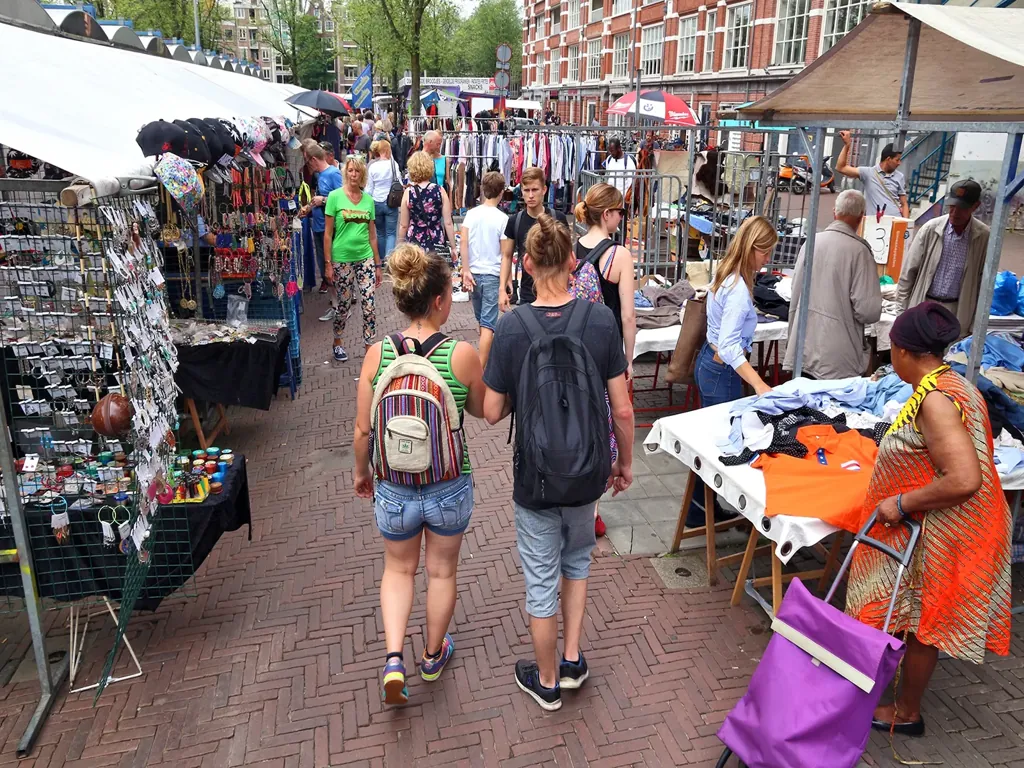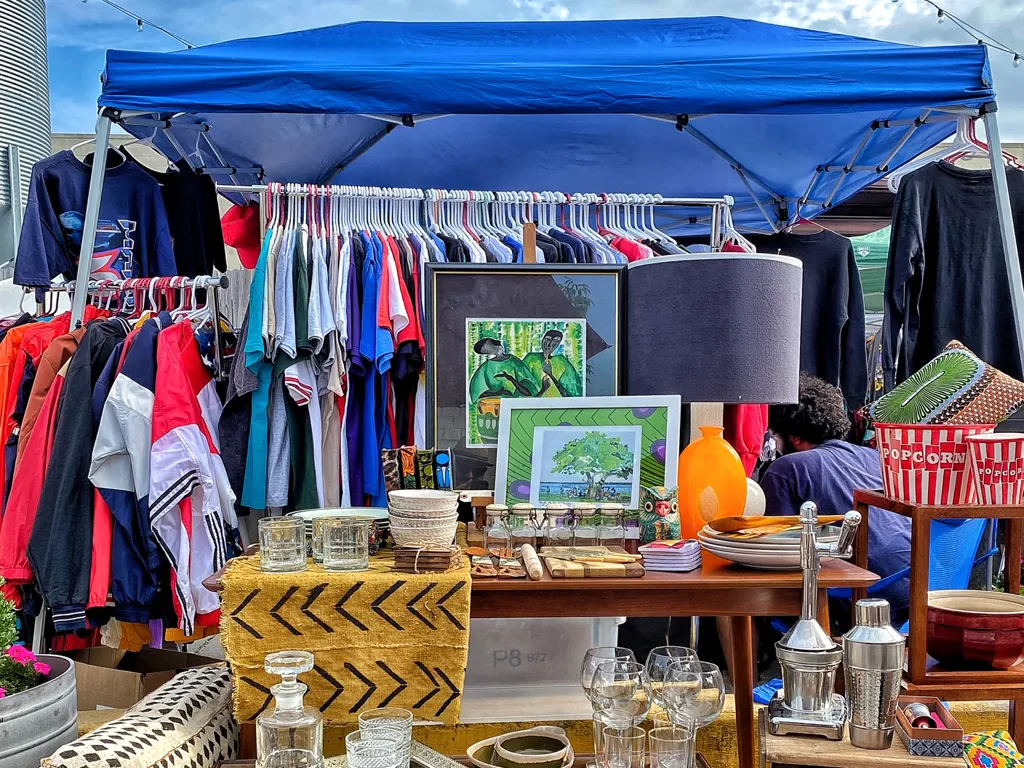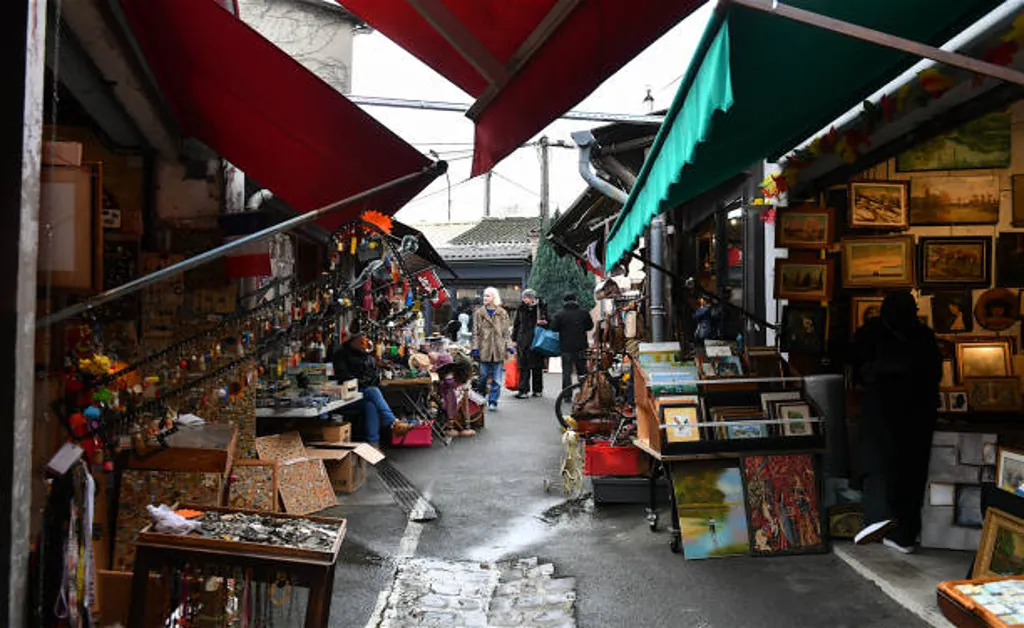Flea markets are a shopper’s paradise, bursting with hidden gems, vintage treasures, and unbeatable bargains. Whether you’re hunting for antique furniture, rare collectibles, or unique fashion finds, knowing how to shop smart at flea markets can turn an ordinary weekend trip into a thrilling treasure hunt.
But let’s be honest: flea markets can also be huge. Flea markets are circulating is every state, from cities of the United States (Oklahoma, California, or Texas), Canada, to the UAE. Without the right strategy, you might overpay for fake goods, miss out on the best deals, or fall for common scams. That’s where this guide comes in. We’ll walk you through expert-approved tips, from scoring the best bargains to mastering the art of haggling, so you can shop with confidence.
Ready to unlock the secrets of flea market success? Grab your tote bag, bring your bargaining skills, and let’s dive into the ultimate guide to buying at flea markets like a pro!
Table of Contents
Toggle1. Research Before You Go
Take a little time first. Learn about the flea markets near you or in the place you are going to visit, as it helps a lot before stepping out.
Know the Market
Not all flea markets are the same. Some specialize in antiques, others focus on handmade crafts, while some are a mix of everything. Check online reviews, market websites, and social media pages to understand:
- Vendor variety
- Price ranges
- Parking and entry fees
- Popular vendor stalls
Best Time to Go to Flea Markets
Get there early if you want the best finds; the rare stuff goes fast. You’ll have the first chance to grab something special. But arriving later also works. Some sellers lower prices near the end. They’d rather not carry everything back home.
Pro Tip: Some vendors offer early access passes for a small fee. If you’re serious about getting the best flea market finds, it might be worth it.
2. Bring the Right Supplies
Many new flea market shoppers forget one simple thing: pack smart. These few items can make your trip much better.
i. Cash is King
Some vendors won’t take cards. A few might not even use payment apps, you need to carry cash with you. Small bills work best. Have coins too, it helps when you’re trying to agree on prices.
ii. Tote Bags and a Cart
You’ll likely leave with more than planned, tote bags can hold a lot. A little cart works well too. Large finds won’t slow you down that way. Some seasoned shoppers even bring small wagons.
iii. Measuring Tape and a Notepad
Start: “Get the basics in your bag first.”
Get the basics in your bag first. A small tape measure should be one of them. You’ll need it while browsing for chairs, shelves, or any decor. Know your space. Grab a pen and paper and mark down your room’s size. This makes shopping smoother.
iv. Snacks and Water
Flea market trips often turn into long walks. You might spend more time there than you thought. Bring a water bottle. Add a snack or two to your bag. It’s a simple way to keep your energy up and avoid feeling drained.
3. How to Spot a Good Deal
Knowing what to look for at flea markets helps you identify gems and avoid junk.
i. Inspect Everything
Always check items thoroughly for damage, wear, or missing parts. For electronics, ask to test them. For clothes, look for stains, holes, or signs of moth damage.
ii. Ask Questions
Knowing the backstory adds meaning. Ask sellers about the age, maker, and past fixes of any older piece. This helps you understand its true value.
iii. Trust Your Gut
If something seems overpriced or inauthentic, it probably is. Walk away, you’ll likely find something better at another stall.
iv. Know Market Value
Check prices before heading out. Knowing the usual cost can help you catch a fair price and avoid overpaying.
4. Mastering the Art of Bargaining
Bargaining is part of the fun at flea markets. Most sellers expect it, and it’s fine as long as you’re nice about it.
i. Be Polite and Respectful
Start with a smile and engage the vendor in friendly conversation. Never insult an item or lowball the seller.
ii. Bundle for a Better Price
If you like multiple items, ask for a bundle discount. Vendors are more likely to offer deals if you’re buying in volume.
iii. Ask Open-Ended Questions
Ask in a way that keeps the chat going. Try, “Can we do a little better?” or “What’s your best deal on this?”
iv. Know When to Walk Away
Sometimes, walking away leads the vendor to lower the price. But don’t bluff unless you’re truly willing to lose the item.
v. Be Reasonable
How to negotiate prices isn’t about winning; it’s about reaching a fair deal. Vendors need to make money, too, so be fair in your offers.
5. Avoid Common Flea Market Scams
Flea markets are generally safe, but it’s important to be aware of potential scams.
i. Beware of Counterfeits
It’s tempting to buy designer bags, watches, and electronics when they’re priced too low to believe. But be careful. If you’re unsure about their authenticity, it’s better to skip them.
ii. Don’t Fall for Fake Antiques
Fake antiques are another trap. Some items are purposely made to look older than they are. Ask for proof of origin and check for maker’s marks to confirm they’re genuine.
iii. Avoid Overpriced “Handmade” Goods
Sometimes, mass-produced items are passed off as handmade. Do a quick quality check—authentic handmade goods usually show small imperfections or artisan marks.
iv. No Refunds
Assume that all sales are final. That’s why inspecting items thoroughly is crucial before you hand over cash.
6. Payment and Finalizing Your Purchase
It’s time to seal the deal once you’ve haggled and agreed on a price.
i. Count Your Change
If you’re paying in cash, double-check your change before walking away. Mistakes happen on both sides.
ii. Get a Receipt (If Possible)
It’s always a good idea to ask for a receipt, especially when buying valuable items. Some vendors provide handwritten ones. If the business runs regularly, make sure you get a receipt for your purchase. This helps in case you need proof of purchase.
iii. Transporting Large Items
If you’re buying something heavy or large, check if the vendor can hold it. Until you grab your car. Most sellers will gladly help, especially when it comes to furniture or bulky items. It’s a convenient solution for transporting large purchases.
FAQs
What is the best day to go to a flea market?
Weekends tend to bring in more vendors and customers. Saturday mornings often offer the most variety, while Sunday afternoons provide great opportunities for deals as vendors look to clear out their stock.
Should I negotiate at flea markets?
Yes! Bargaining at flea markets is normal and often expected. Just be respectful and reasonable in your offers.
What are the best items to buy at flea markets?
Popular flea market finds include vintage furniture, handmade crafts, rare collectibles, retro clothing, and unique home decor.
Is it safe to buy electronics at a flea market?
It depends. Always ask to test electronics before buying. If a vendor refuses or there’s no way to test, consider skipping it.
Do flea markets accept credit cards?
Some vendors do, especially at larger markets. But many are cash-only, so it’s smart to bring a mix of both.
How can I tell if an antique is real?
Look for maker’s marks, patina (natural aging), and signs of handcrafting. When in doubt, take a photo and do a quick online search or consult an expert.
Can I return an item to a flea market vendor?
Usually, not all sales are final unless the vendor states otherwise. Inspect everything thoroughly before buying.
What should I wear to a flea market?
Dress comfortably and wear sturdy shoes. You’ll be walking a lot, possibly in dusty or uneven areas.
What should beginners know about flea markets?
Go early, bring cash, don’t be afraid to bargain, and come with an open mind. Shopping at flea markets is a mix of strategy and spontaneity.
Final Thoughts
A walk through a flea market can surprise you. It’s packed with memories, clever finds, and deals waiting to happen. Maybe you collect old items. Maybe you just like the thrill. Whatever your reason, knowing how to shop here gives you an edge.
Bring what you need. Know how to talk to sellers. Look out for bad signs. These things make a big difference. They help you buy better and enjoy the day more. And who knows? You might take home something rare or meaningful.
Lace up your shoes. Bring your bag. Let the treasure hunt roll.



